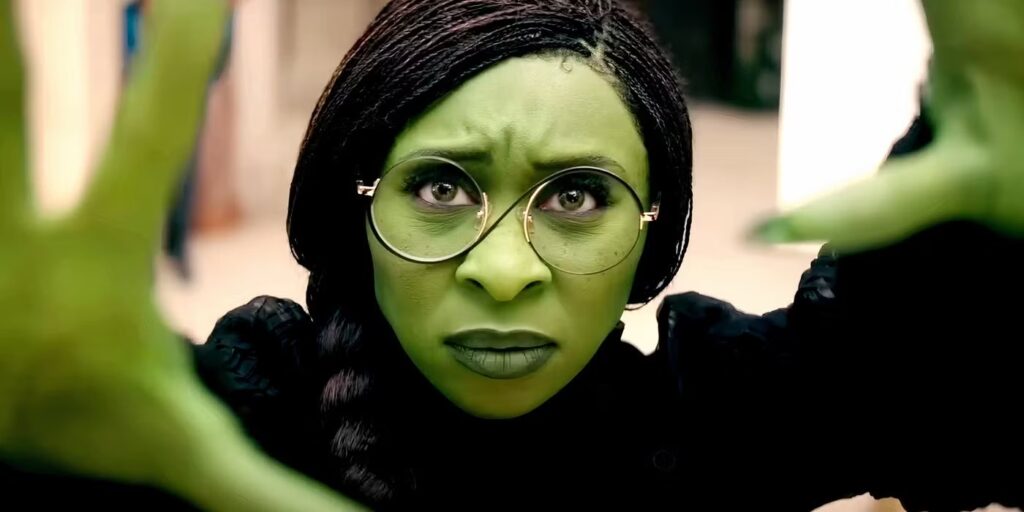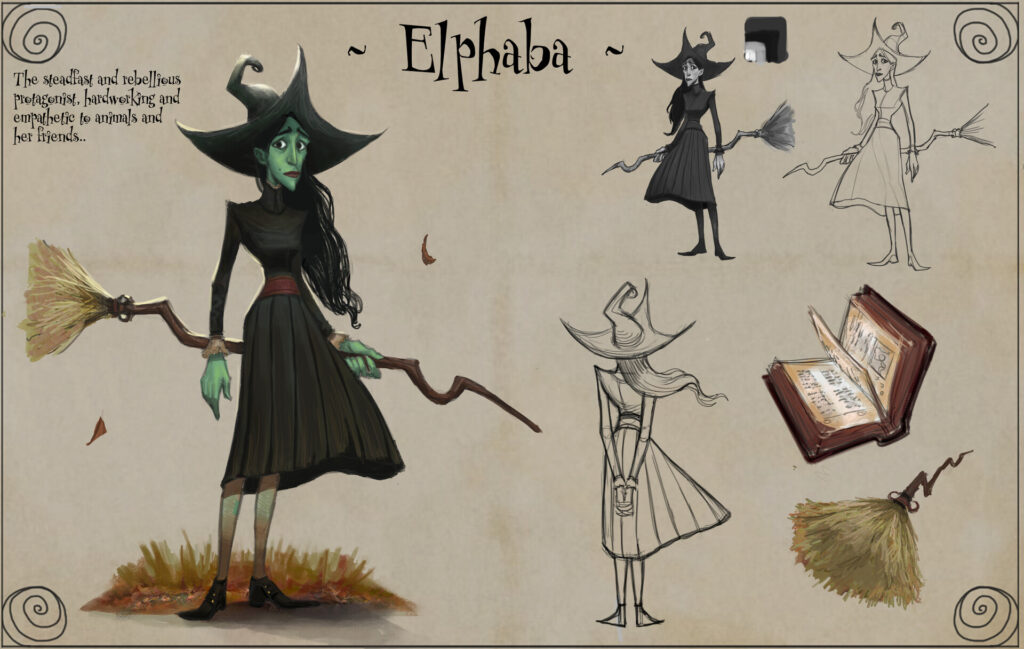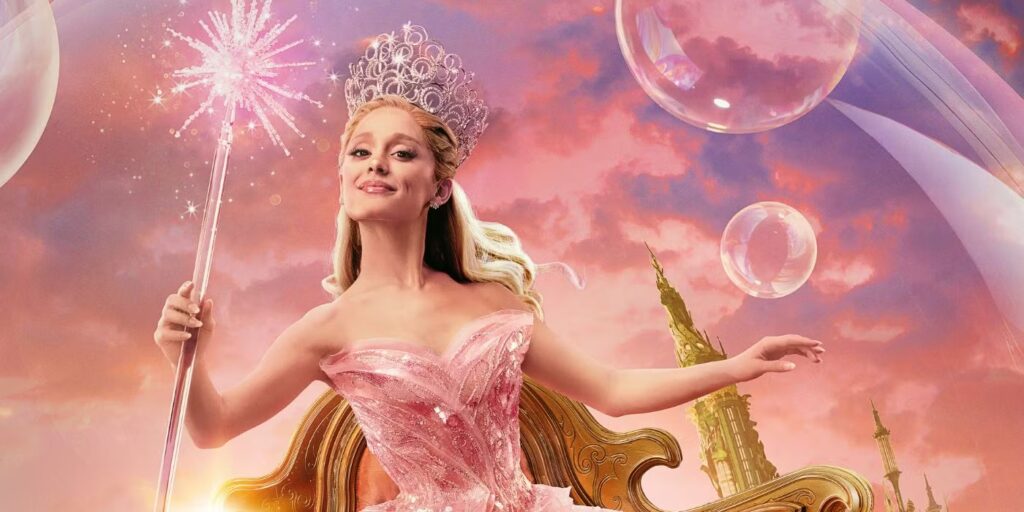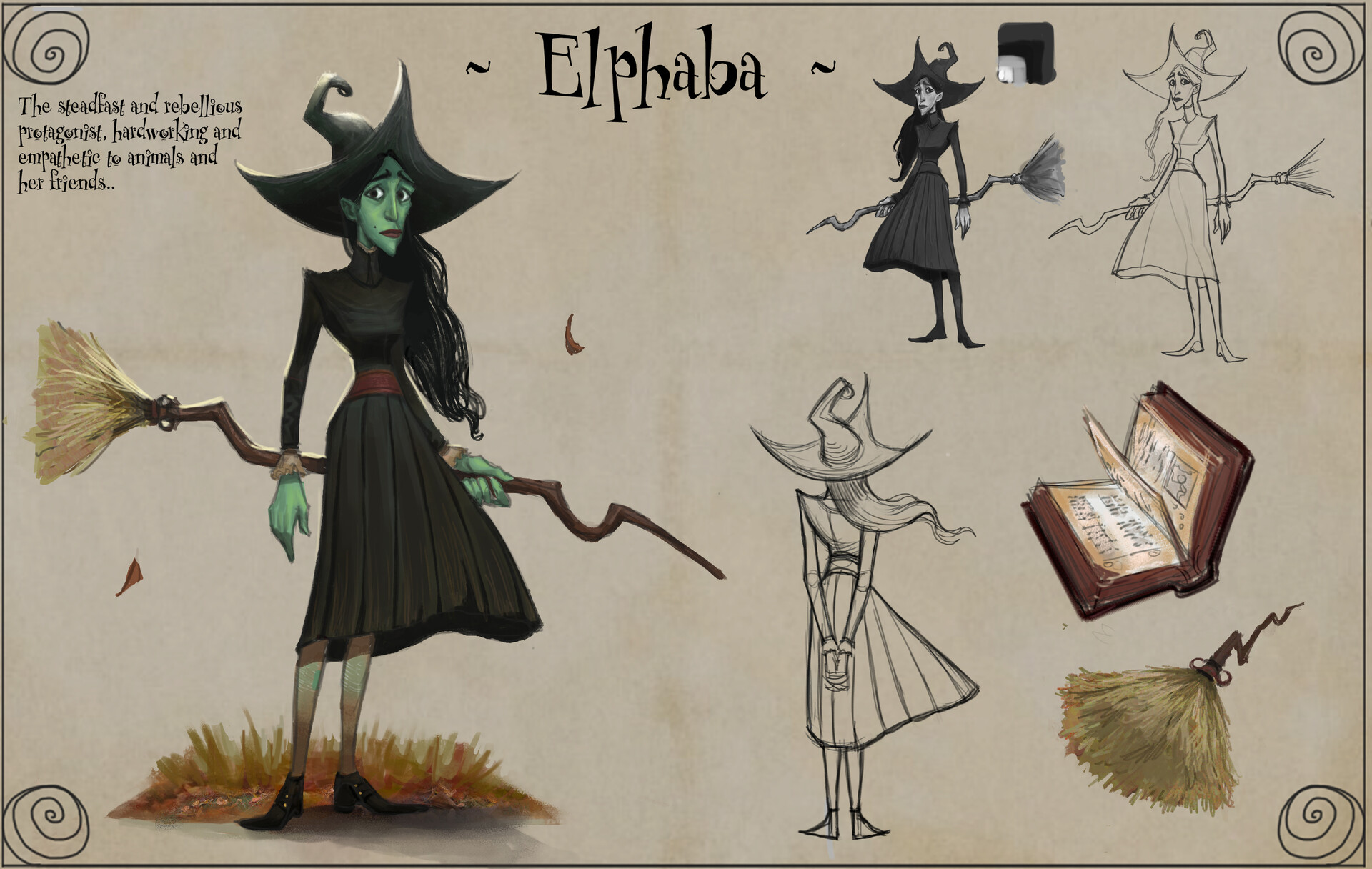Branding is weird.
We spend all this time trying to make companies feel like people, give them personalities, and make them tell stories that convince you to swipe your card. And guess what? It works. Because deep down, humans are suckers for a good story.
At the center of this storytelling strategy are archetypes. You’ve heard of them—the Rebel, the Hero, the Everygirl. They’re like the Avengers of branding: you pick one, slap it onto your company, and suddenly you’re not just selling shoes, you’re selling a lifestyle.
But here’s the kicker: a lot of what we think we know about archetypes is wrong. And there’s no better way to explain this than with Wicked, the musical that makes us root for the green-skinned, misunderstood witch.

Archetypes Aren’t Jung’s Baby, Sorry
Here’s a fun fact: Carl Jung didn’t give us branding archetypes. Sure, he started the party with his psychological theories, but it was Carol Pearson who really turned archetypes into a branding playbook in her book The Hero and the Outlaw.
Pearson didn’t just name archetypes; she made them actionable. Archetypes are shortcuts to human connection—your brand isn’t just a product; it’s an identity people can latch onto.
So, let’s set the record straight: you don’t owe Jung for your brand’s Rebel vibes. You owe Pearson.
The Rebel Archetype: Overplayed but Undeniable
Rebels are everywhere in branding. They’re the bad kids of marketing, flipping off authority and daring you to join them. Think Brewdog, Liquid Death, Dr. Martens, and even Starface (yes the pimple brand). These brands don’t just sell products—they sell rebellion, freedom, and a little bit of “screw the system.”
But here’s the thing: Rebels without a purpose suck. If your brand’s only message is “We’re different,” people will roll their eyes and move on.
Rebels need a cause. A fight. A reason for their middle finger.
That’s what makes Elphaba the ultimate Rebel. She’s not green just for the aesthetic; her entire life is about pushing back against a society that judges her for something she can’t change. She’s a fighter, not just a troublemaker.

Elphaba: The Rebel-Magician-Creator Triple Threat
Elphaba isn’t just a Rebel. She’s also a Magician (she literally does spells) and a Creator (she reinvents herself and her world). That’s what makes her so compelling. She’s not one-dimensional, and neither are the best brands.
Witches, historically, have always been this way—rebels, healers, visionaries. They’ve stood at the edge of society, shaking things up, healing people, and freaking everyone out. Sound familiar? That’s basically what the best Rebel brands do.
Want your brand to channel Elphaba? Mix the rebellious spirit with transformative magic and a touch of creative genius.
Meanwhile, Glinda Is Your Everygirl Archetype
Let’s not forget Glinda. She’s sparkly, popular, and wants to be liked by everyone—a textbook Everygirl. Brands like Dove and IKEA thrive on this vibe: approachable, friendly, and just a little aspirational.
But Glinda’s real charm comes from her growth. She starts as superficial but learns depth. That’s a great reminder for brands—your archetype can evolve. Just don’t lose the sparkle.

The Rebel-Hero Dilemma
Here’s where things get messy: Rebels and Heroes are like peanut butter and jelly. They’re better together.
A Hero without rebellion? Boring. A Rebel without heroism? Kind of a jerk.
The magic happens when you balance the two. Elphaba rebels, but she’s fighting for something—truth, justice, and acceptance. That’s what makes her compelling.
Your brand can learn from this. Don’t just rebel for the sake of it. Tie your rebellion to a mission your audience can believe in. Otherwise, you’re just shouting into the void.
How to Build a Brand Like Elphaba
- Find Your Fight: Rebels without a cause are annoying. What are you fighting for?
- Be Real: People can tell when you’re faking it. Authentic rebellion is magnetic.
- Borrow Wisely: Blend Rebel with Hero or Magician to add depth. Nobody likes a one-note brand.
- Challenge Authority, With Purpose: Don’t just flip tables—explain why you’re doing it.
Why Wicked Is a Branding Masterclass
Archetypes are like the cheat codes for branding. They let your audience connect with you on a deeper level.
And Wicked? It’s proof that archetypes aren’t one-size-fits-all. Elphaba and Glinda show us the power of storytelling, complexity, and leaning into your strengths.
So, whether your brand is a Rebel with a cause, an Everygirl with a sparkle, or a Hero on a mission, there’s one thing we can learn from Elphaba: if you’re going to defy gravity, do it with purpose.
Claim your free brand archetypes workshop
Book a consultation with our team here and ask about our free mini-brand workshop. We’ll help you tease out a mission that matters to buyers, investors and stakeholders, in 30 minutes, for aboslutely nothing.
It’s also Wicked fun (see what we did there?)
What are you waiting for? let’s make some brand magic happen.
Branding is weird. We spend all this time trying to make companies feel like people, give them personalities, and make them tell stories that convince you to swipe your card. And guess what? It works. Because deep down, humans are suckers for a good story.
At the center of this storytelling strategy are archetypes. You’ve heard of them—the Rebel, the Hero, the Everygirl. They’re like the Avengers of branding: you pick one, slap it onto your company, and suddenly you’re not just selling shoes, you’re selling a lifestyle.
But here’s the kicker: a lot of what we think we know about archetypes is wrong. And there’s no better way to explain this than with Wicked, the musical that makes us root for the green-skinned, misunderstood witch.
(Image idea: Elphaba in her iconic pose from “Defying Gravity,” with text overlay: “Rebel? Hero? Witch? Why not all three?”)
Archetypes Aren’t Jung’s Baby, Sorry
Here’s a fun fact: Carl Jung didn’t give us branding archetypes. Sure, he started the party with his psychological theories, but it was Carol Pearson who really turned archetypes into a branding playbook in her book The Hero and the Outlaw.
Pearson didn’t just name archetypes; she made them actionable. Archetypes are shortcuts to human connection—your brand isn’t just a product; it’s an identity people can latch onto.
So, let’s set the record straight: you don’t owe Jung for your brand’s Rebel vibes. You owe Pearson.
(Image idea: A side-by-side graphic of Carl Jung and Carol Pearson, with the caption: “Who really made your brand cool?”)
The Rebel Archetype: Overplayed but Undeniable
Rebels are everywhere in branding. They’re the bad kids of marketing, flipping off authority and daring you to join them. Think Harley-Davidson, Liquid Death, and Dr. Martens. These brands don’t just sell products—they sell rebellion, freedom, and a little bit of “screw the system.”
But here’s the thing: Rebels without a purpose suck. If your brand’s only message is “We’re different,” people will roll their eyes and move on. Rebels need a cause. A fight. A reason for their middle finger.
That’s what makes Elphaba the ultimate Rebel. She’s not green just for the aesthetic; her entire life is about pushing back against a society that judges her for something she can’t change. She’s a fighter, not just a troublemaker.
(Image idea: A bold still of Elphaba staring down the mob, paired with brand logos like Liquid Death or Harley-Davidson.)
Elphaba: The Rebel-Magician-Creator Triple Threat
Elphaba isn’t just a Rebel. She’s also a Magician (she literally does spells) and a Creator (she reinvents herself and her world). That’s what makes her so compelling. She’s not one-dimensional, and neither are the best brands.
Witches, historically, have always been this way—rebels, healers, visionaries. They’ve stood at the edge of society, shaking things up, healing people, and freaking everyone out. Sound familiar? That’s basically what the best Rebel brands do.
Want your brand to channel Elphaba? Mix the rebellious spirit with transformative magic and a touch of creative genius.
(Image idea: A collage of modern “rebellious” women with Elphaba, labeled “Witches: Then and Now.”)
Meanwhile, Glinda Is Your Everygirl Archetype
Let’s not forget Glinda. She’s sparkly, popular, and wants to be liked by everyone—a textbook Everygirl. Brands like Dove and IKEA thrive on this vibe: approachable, friendly, and just a little aspirational.
But Glinda’s real charm comes from her growth. She starts as superficial but learns depth. That’s a great reminder for brands—your archetype can evolve. Just don’t lose the sparkle.
(Image idea: Glinda in her bubble juxtaposed with a Dove ad or IKEA catalog image.)
The Rebel-Hero Dilemma
Here’s where things get messy: Rebels and Heroes are like peanut butter and jelly. They’re better together.
A Hero without rebellion? Boring. A Rebel without heroism? Kind of a jerk.
The magic happens when you balance the two. Elphaba rebels, but she’s fighting for something—truth, justice, and acceptance. That’s what makes her compelling.
Your brand can learn from this. Don’t just rebel for the sake of it. Tie your rebellion to a mission your audience can believe in. Otherwise, you’re just shouting into the void.
(Image idea: A Venn diagram of “Rebel” and “Hero” with Elphaba smack in the middle.)
How to Build a Brand Like Elphaba
- Find Your Fight: Rebels without a cause are annoying. What are you fighting for?
- Be Real: People can tell when you’re faking it. Authentic rebellion is magnetic.
- Borrow Wisely: Blend Rebel with Hero or Magician to add depth. Nobody likes a one-note brand.
- Challenge Authority, With Purpose: Don’t just flip tables—explain why you’re doing it.
(Image idea: A bold checklist with Elphaba’s green-and-black color scheme.)
Conclusion: Why Wicked Is a Branding Masterclass
Archetypes are like the cheat codes for branding. They let your audience connect with you on a deeper level.
And Wicked? It’s proof that archetypes aren’t one-size-fits-all. Elphaba and Glinda show us the power of storytelling, complexity, and leaning into your strengths.
So, whether your brand is a Rebel with a cause, an Everygirl with a sparkle, or a Hero on a mission, there’s one thing we can learn from Elphaba: if you’re going to defy gravity, do it with purpose.
Claim your free brand archetypes workshop
Book a consultation with our team here and ask about our free mini-brand workshop. We’ll help you tease out a mission that matters to buyers, investors and stakeholders, in 30 minutes, for absolutely nothing.
It’s also Wicked fun (see what we did there?)
What are you waiting for? Let’s make some brand magic happen.
